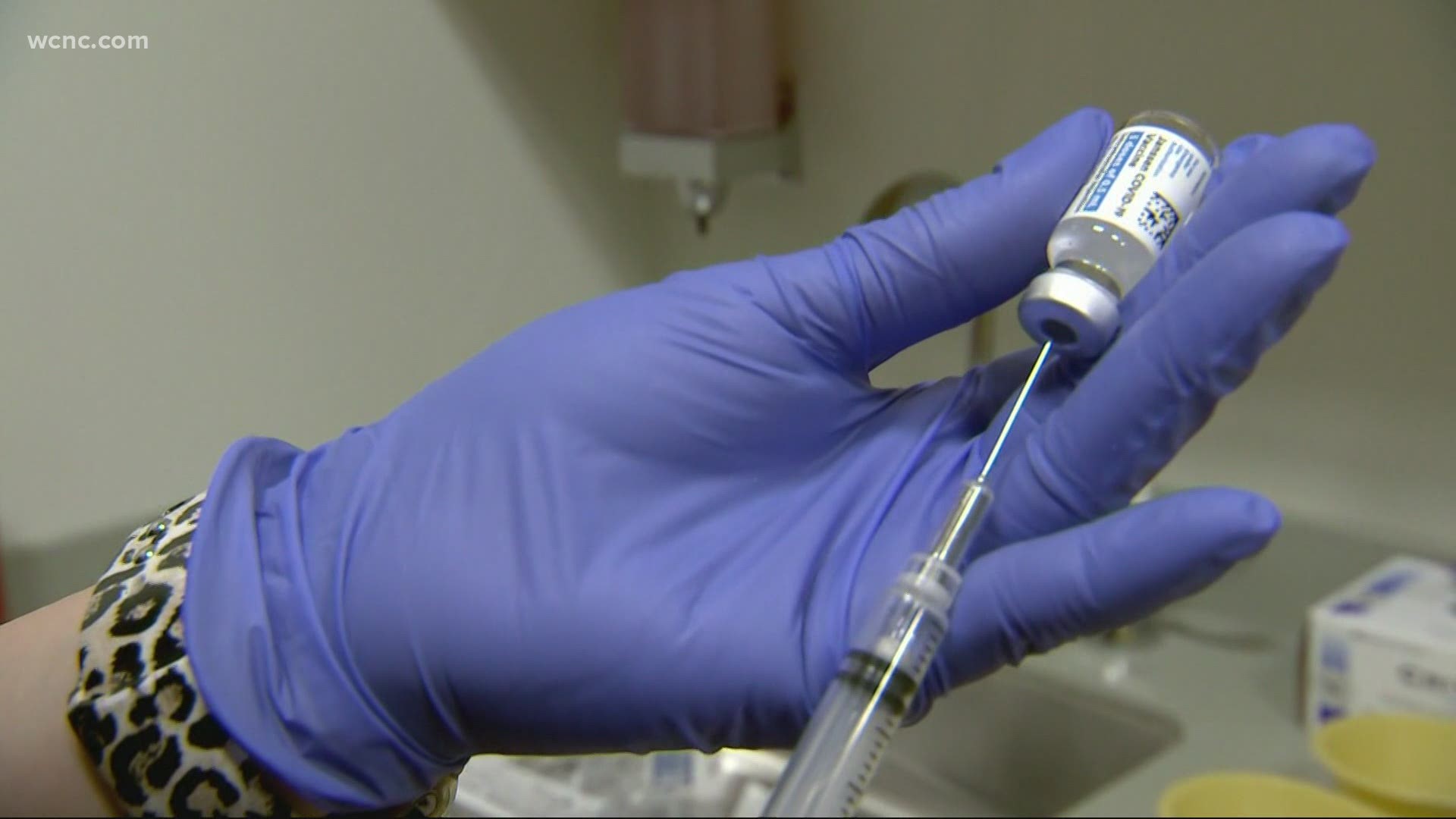CHARLOTTE, N.C. — A new COVID-19 variant that was first reported in India has been discovered in South Carolina, health officials announced this week.
According to the Department of Health and Environmental Control (DHEC), at least four cases of the Indian variant were reported. This is causing some concern for state officials as Memorial Day weekend is less than a week away.
"In the past, we have seen cases increase after holidays when gatherings have increased, but now with the availability of vaccines we hope people will get them to reduce the transmission risk of COVID," said Dr. Linda Bell, the state's epidemiologist.
Bell says around 9,000 kids age 12-15 have gotten at least one dose of the Pfizer vaccine, and that officials hope those who are vaccinated will help reduce any possible surges in the coming weeks. But with only 35% of the population fully vaccinated, the concerns are mostly with people who are not vaccinated, especially with the newly reported cases of the variant from India.
"There have been these questions about the variants. We don't expect this but we also have to anticipate the possibility of the emergence of viral variants that could escape protection from the vaccine," Bell said. "So if we can continue to drive our disease rates down before that theoretically happens, that would put us in a much better position."
Health officials are on guard for what could be another surge as many people will go maskless and may ignore social distancing recommendations.
"We know those who are currently not vaccinated are the most susceptible," Bell said. "Those are the individuals that could really drive that disease curve in the wrong direction."
Contact Richard DeVayne at rdevayne@wcnc.com and follow him on Facebook and Twitter.

